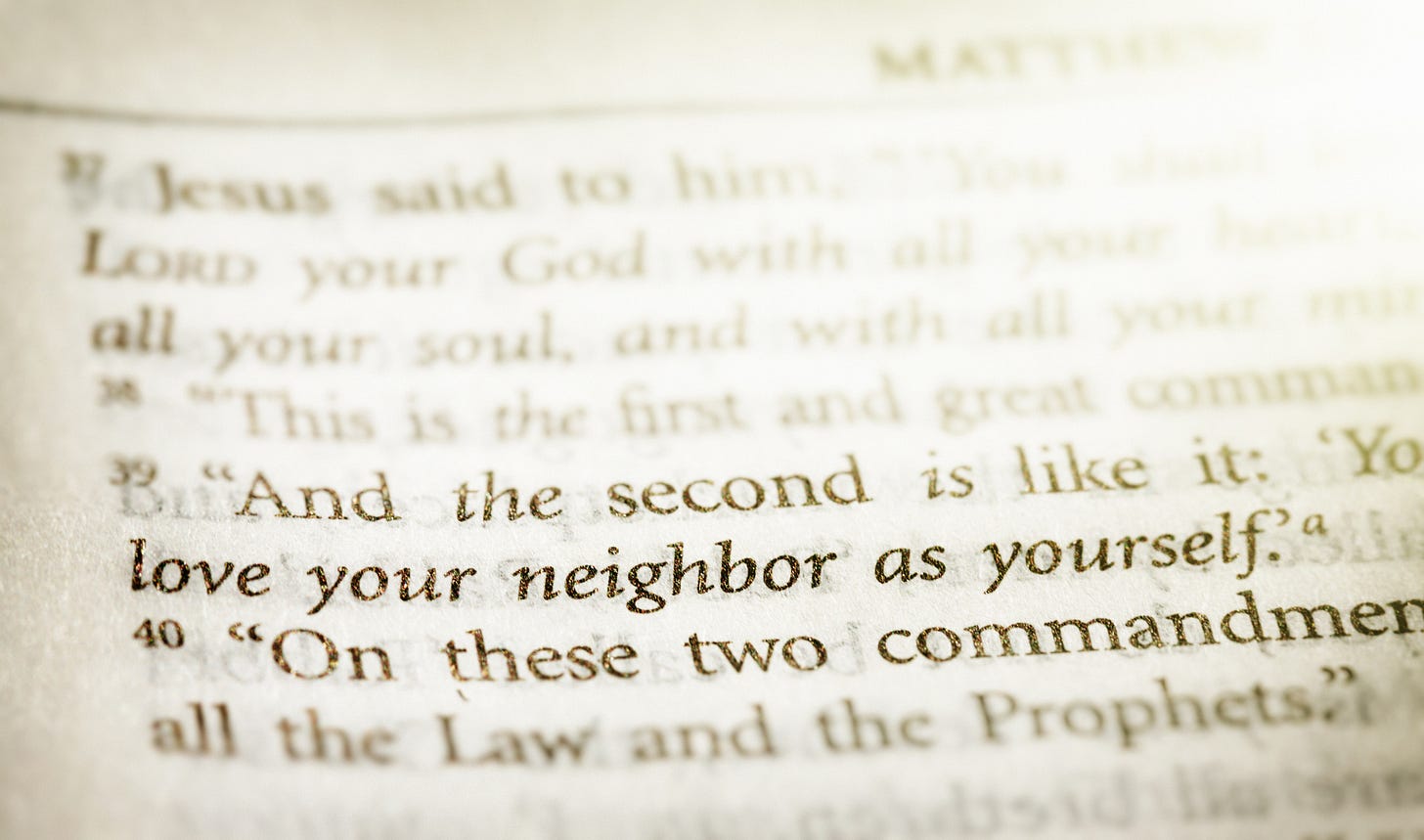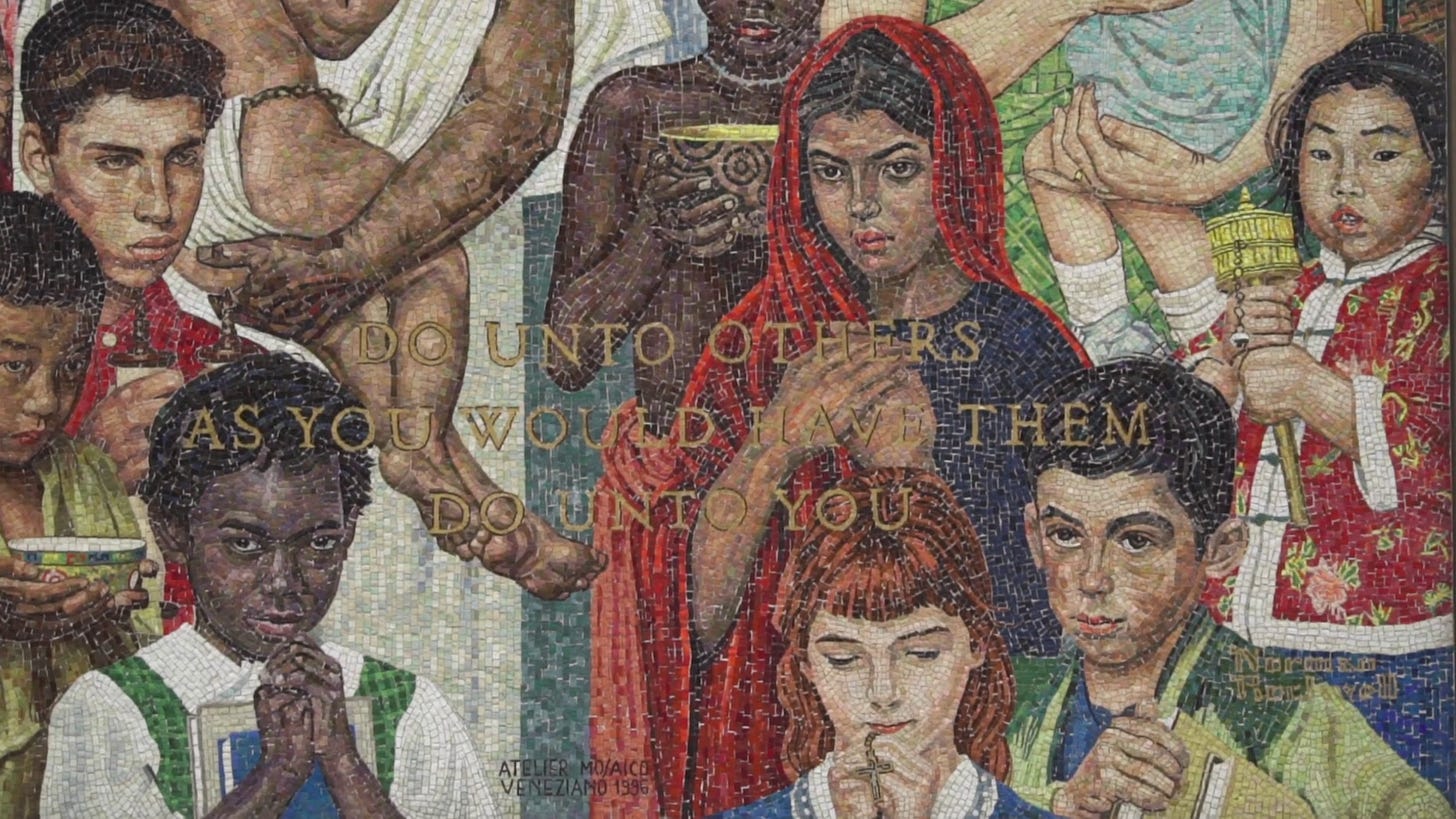

Discover more from The Cottage
With the elections approaching here in the United States, fears of violence in upcoming weeks, COVID cases rising and a “dark winter” threatening, there is so much anxiety and uncertainty in these difficult days. The stress has been overwhelming for many. In the last week alone, I’ve been asked by dozens of friends and readers how to stay focussed and grounded.
One of the practices that helps me is reading the Bible. Oddly enough, in the last four years of political turmoil, I’ve found the Bible to be more powerful, more comforting, more relevant, and wiser than at any other time in my life.
But many of us don’t quite know how to approach the Bible. I want to share one of the ways I read scripture — something that is easy, accessible, and, particularly this week, meaningful.
Every Sunday, millions of Christians – Protestant and Catholic – read and preach in their churches from a shared schedule of biblical texts. Although following a yearly reading calendar (called a “lectionary”) is ancient, the contemporary lectionary is a three-year cycle of stories from the Old and New Testaments. The current readings have remained largely unchanged for more than thirty years. Since the texts were organized decades ago, they don’t follow a pastor’s preferences or issues in the news. There’s a kind of timeless consistency to them.
Each week, sometime in advance of the weekend, I read the lectionary texts for the upcoming Sunday. A few days ago, following this practice, I looked up the readings for this Sunday:
You shall not take vengeance or bear a grudge against any of your people, but you shall love your neighbor as yourself: I am the LORD.
- Leviticus 19:18When the Pharisees heard that Jesus had silenced the Sadducees, they gathered together, and one of them, a lawyer, asked him a question to test him. “Teacher, which commandment in the law is the greatest?” He said to him, “‘You shall love the Lord your God with all your heart, and with all your soul, and with all your mind.’ This is the greatest and first commandment. And a second is like it: ‘You shall love your neighbor as yourself.’ On these two commandments hang all the law and the prophets.”
- Matthew 22:34-40

Love God.
Love your neighbor as yourself.
“Love God” and “love your neighbor” appear in both Hebrew scripture and in the Christian New Testament. In this Sunday’s story, when challenged to rank them, Jesus was unwilling to do so and wove the commands into a single Great Commandment. The call to love God is the heart of faith, and yet it is not disembodied. Loving God manifests itself in love of neighbor. To be a good Jew or a good Christian means to be a person with a rightly directed heart and ready hands to aid one’s neighbor.
The second half of the Great Command, the neighbor part, is also known (in a slightly different version) as the Golden Rule. The Jewish form is found above, in Leviticus 19:18. Jesus quotes it directly in his remarks, and he restates it in other New Testament stories: “In everything do to others as you would have them do to you” (Matthew 7:12).

I don’t remember when I first heard either the Great Command or the Golden Rule. Sunday school? A sermon at church? A Bible story read by my mother? Long before I memorized the books of the New Testament, could recite any creed, or knew any formal theology, I knew the Great Command and the Golden Rule.
That this week’s lectionary readings led me back to these simple truths — the first things I knew of faith — love God and love neighbor — was a great gift. As I read the words, I breathed easier and felt a soulful spaciousness. “Love God, love neighbor” cleared the clutter, reminding my weary spirit of an ancient wisdom. These words have sounded forth for millennia — through political crises, times of violence, pandemics and suffering, and many a dark winter. And they have guided humankind toward justice, peace, and healing, shining their bright light in the worst of times.
What could be more relevant to our elections, to getting through the pandemic, and for facing our anxieties, than the Great Command and the Golden Rule? Sometimes the simplest thing is the most needed thing.
When you vote, remember: Love God, love your neighbor.
When you don your mask, remember: Love God, love your neighbor.
When you listen to the news, remember: Love God, love your neighbor.
When you can’t catch your breath, remember: Love God, love your neighbor.
Whatever you do, remember: Love God, love your neighbor.
In a week of terrible news, the worst story was that 545 children who were taken from their families by the American government at the border appear to be permanently lost to their biological parents. To add to the horror, 362 of those children are now completely missing, with no record of their current location. In effect, the Trump administration destroyed these families, with grieving parents deported and children left without their natural mothers and fathers. And the lost children may be endangered.
There is nothing moral, humane, or ethical about what was done in the name of the American people to these children. For those of us who are Christians, repentance is necessary along with a commitment that nothing like this will ever again happen to any children in our nation. When you vote, remember that these children and their parents were, in clear biblical terms, our neighbors. Vote for them. And vote that no American immigration policy will ever again violate fundamental Christian values regarding “the least of these.” Do to others as you would have done to you and your children.
INSPIRATION:
We become neighbors when we are willing to cross the road for one another…There is a lot of road crossing to do. We are all very busy in our own circles. We have our own people to go to and our own affairs to take care of. But if we could cross the road once in a while and pay attention to what is happening on the other side, we might indeed become neighbors.
― Henri J.M. Nouwen
If there were love of neighbor there would be no terrorism, no repression, no selfishness, none of such cruel inequalities in society, no abductions, no crimes.
– Archbishop Oscar Romero
There is no morality without empathy, and there is certainly no empathy in this policy. Morality is loving your neighbor as yourself, which comes from seeing your neighbor as yourself, which means trying to ease your neighbor’s burdens—not add to them.
― Melinda Gates
Teach your children, “love your neighbor like your family,” but not because it is a Christian thing to do, rather because it is a human thing to do.
― Abhijit Naskar
All of us, at some time or other, need help. Whether we’re giving or receiving help, each one of us has something valuable to bring to this world. That’s one of the things that connects us as neighbors—in our own way, each one of us is a giver and a receiver.
— Fred Rogers
A LITANY FOR ELECTION DAY
(from the Vicars’ Crossing Podcast)
Lord, let us be a people who truly provide liberty and justice for all
Lord, in your mercy, hear our prayer
May we value every citizen
Lord, in your mercy, hear our prayer
Help us strive to be a people who agree on basic human values
Lord, in your mercy, hear our prayer
Lord, let us stand tall in the world without arrogance
Lord, in your mercy, hear our prayer
Help us be a people that provides for the poor, the weak and the hungry
Lord, in your mercy, hear our prayer
Make us a people who condemn white supremacy and who speak out against domestic terrorism
Lord, in your mercy, hear our prayer
Help us heal our divisions, seek unity and have civil and productive discourse about our differences.
Lord, in your mercy, hear our prayer
Let us be a people who revere all nature and who live in harmony with every living creature
Lord, in your mercy, hear our prayer
Let us love and cherish Mother Earth, as she has loved us
Lord, in your mercy, hear our prayer
We pray for strong, intelligent, honest and steadfast leaders
Lord, in your mercy, hear our prayer
Let us be a people who seek and promote peace among all peoples
Lord, in your mercy, hear our prayer




What a wonderful essay on the rock bottom of being human - love God and love neighbor. Great and helpful! Many thanks to you!
I have often pondered on the sequence of these two commands. The order seems very significant. When we love God, it appears that a channel of communication is formed, and the revelation of the immense love God has for us is realized. Only then can we love others as ourselves, as we have been loved. As we have been loved becomes the very essence of love itself, who we really are.